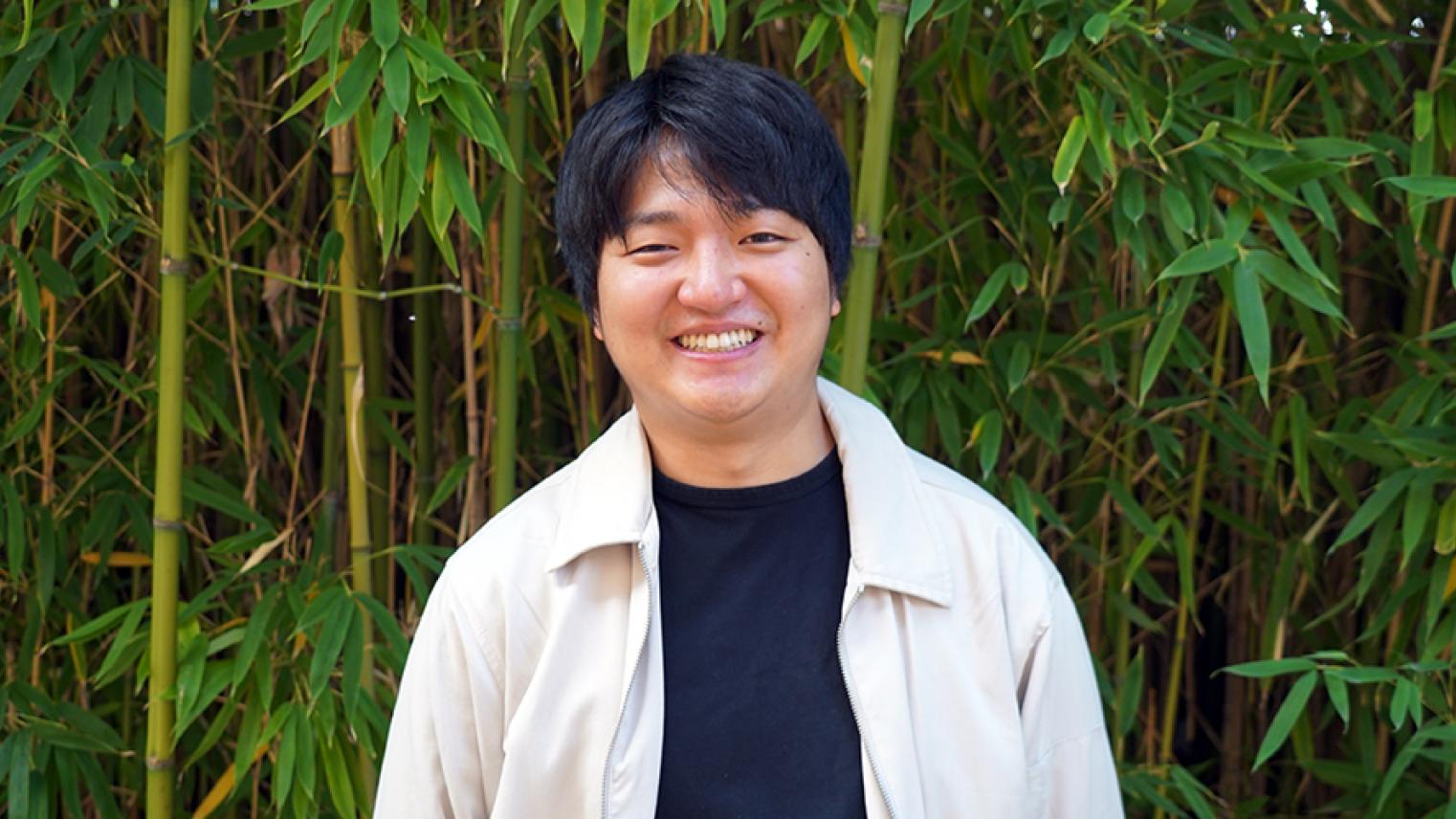Haneol Mun - a decision to emigrate at 16 results in a University Medal

Master of International Relations student Han Mun will receive a University Medal for academic excellence at today’s graduation ceremony at ANU. He achieved straight High Distinctions and attained a GPA of 7.
Han first came to Australia from Korea at the age of 16 to attend high school in Sydney. Arriving alone, he lived off campus, and initially spoke and wrote very little English. The years that followed have developed in Han outstanding academic skills, and a keen interest in International Relations (IR). He has also developed an appreciation for the multicultural, varied, diverse cohort of colleagues and lecturers he has found on the ANU campus.
ANU taught me lots of things, first of all, how to engage with people with different expertise and backgrounds to my own. It has taught me how to communicate with others with humility and curiosity.
He says ANU has given him extensive academic knowledge, particularly “how to see the world from a critical perspective, and from multiple, various perspectives, always questioning and always exploring new things.”
Initially Han expected Canberra to be a very boring place. He was surprised to find a vibrant city with people from all sorts of different cultures. He said living on campus in Toad Hall was an “amazing atmosphere where you can meet people from countries that you’ve never imagined”.
After completing high school in Sydney, Han studied an undergraduate degree at UNSW in Arts, majoring in International Relations. At the age of 21 he returned to South Korea to do the compulsory 18 months of military service, and then decided to study more. All his UNSW lecturers recommended that he do his postgrad at ANU, spruiking the specialised scholars and experts here who teach into the masters program, and the diversity of approaches and expertise in the faculty. For example, there are historians who study IR in a historically rounded manner, others who take a broader look at IR from various disciplines, and some who take marginal approaches to IR from the perspective of feminist intellectualism, or peace and conflict studies.
He first enrolled in a Graduate Diploma of International Relations at ANU, which is a one-year program, but quickly realised he wanted to study for longer, so he chose to extend into the Masters degree. This only added another semester to his studies, as he was able to gain credits from his undergraduate IR degree. He is still graduating earlier than he expected.
When he first started his Masters program at ANU, he particularly enjoyed the introductory course called ‘Issues and Concepts in International Relations’, led by Professor Cian O’Driscoll. Han said Professor O’Driscoll “not only introduced us to the historical and conceptual foundation of International Relations in a nuanced and critical manner, but also kindly guided those of us who were beginning our academic journey at ANU on how to engage in a more humble way with other people holding different perspectives.” Professor O’Driscoll says
Han reflects everything that’s special about the Bell School. He’s a creative thinker, widely read across several different disciplines, and committed to centring the role of the Asia Pacific in the study of world politics.
Two courses in the Masters of IR were distinct highlights for Han. ‘Evolution of the International System’ was a perfect genealogy and history of IR from 15th century to now, taught by Associate Professor Luke Glanville and Dr Ben Zala. Dr Zala says
Han was a pleasure to teach (and learn from!). He threw himself headfirst into every topic we covered and emerged with a genuine mastery of the subject matter.
Another highlight was ‘Research in IR’ taught by Dr Maria Tanyag who he says is “an absolute pleasure to have as a lecturer, as she is incredibly interdisciplinary, and fascinating.” From her perspective, Dr Tanyag thinks Han is an exceptionally brilliant student.
He has the rare gift of dedicating his research talents to addressing vexed issues in global politics, and in recognising the value of lives and experiences in the ‘margins’ for transforming the way we see the world.
For his final semester he chose the thesis track, which he would never have imagined himself doing, as he grappled with English in his undergrad (failing three courses), and struggled with academic writing early on in his studies. When he took a Gender course with Prof Bina D’Costa he said she gave excellent instruction on how to write a strong essay in an academic way. She also brought in guest lecturers to instruct on how to structure essays and assessments. Thanks to Professor D’Costa’s encouragement and support, he developed the skills and confidence to consider doing a Masters thesis. She also supervised his thesis, on the topic of historical sexual slavery in Korea, in which he compared two case studies of “comfort women”, military prostitutes who were located around US bases in Korea after colonisation.
He says he definitely wants to pursue a PhD at ANU in IR, and is currently sorting out his application. We have a feeling the University Medal for outstanding academic achievement might help him out there just a little. He’s yet to decide on the topic for his doctorate, but he’s leaning towards human trafficking in Korea, or cinema in International Relations, from feminist and postcolonial perspectives.
Whatever Han decides to study next, we are confident that academic rigour and analysis will be outstanding. It will undoubtedly reflect the variety and diversity of approaches and perspectives that he has come to value so much from his time at ANU.